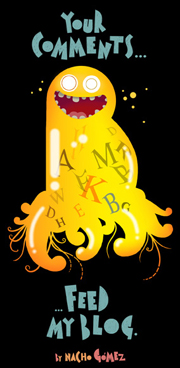PUBLIC AI Index: AMR 25/003/2009
30 March 2009
UA 89/09 Fear for safety
CUBA Jorge Luis García Pérez, usually known as Antúnez (m), activist
Iris Tamara Pérez Aguilera (f), his wife
Carlos Michael Morales Rodriguez (m), journalist
Diosiris Santana Pérez (m)
Ernesto Mederos Arrozarena (m)
Activist and political dissident Jorge Luis García Pérez, usually known as Antúnez, began a hunger strike on 17 February, in protest at the human rights situation in Cuba. Since 17 March, police and State Security officers have surrounded his house, threatening him, his wife Tamara Pérez Aguilera, Carlos Michael Morales, Diosiris Santana Pérez and Ernesto Mederos Arrozarena who joined him in the hunger strike. All five are in grave danger.
Antúnez and his companions are carrying out their protest at his house, in the town of Placetas, 300km east of the capital, Havana. They are calling on the authorities to stop the "repression and torture" of Antúnez's brother-in-law, Mario Alberto Pérez Aguilera, who is imprisoned at Santa Clara Provincial Prison. They are also calling for the release of political prisoners, the ratification ofhuman rights treaties and provision of adequate housing to all Cubans. On 15 March, with their health failing, the group switched from a hunger strike to a restricted diet, eating only fruit and drinking fruit juice.
Since 17 March, at least 20 state security and police officers have been keeping guard in front of Antúnez’s house and have cordoned off the street, stopping friends and relatives trying to visit Antúnez. No one has been allowed to approach the house. Antúnez’s brother has tried to visit him several times, and been detained every time.
According to Antúnez, the officers keeping guard have shouted, "Antúnez, if you don't quit this protest you're going to die" (Antúnez o te mueres o suspendes esta protesta). He told Amnesty International that on the night of 25 March, pepper spray was fired into the house through an open window. On other nights, thehouse has been pelted with stones, and a pile of rubbish has been dumped at the house entrance.
Carlos Michael Morales and another man who had been taking part in the hunger strike were arrested on 2 March at Placetas Hospital after they went to seek medical treatment. Carlos Michael Morales was given eight days' house arrest, after which he managed to return to Antúnez's house to resume his protest.
Antúnez told Amnesty International that "the siege to my home prevents us from getting almost any of the provisions we need to continue our fast, or any medicine" (This constant harassment outside my house, keeps us from going out to aquire the necessary fluids needed to continue with this liquid fast, as well as aquiring medications).
Antúnez is a well-known dissident, who was released in April 2007 after 17 years in prison. He had been detained in 1990 and sentenced to five years on a charge of "enemy propaganda." In May 1993 he was sentenced to an overall total of 15 years' imprisonment on new charges of "enemy propaganda," "attempted sabotage" and "illegal possession of a weapon," all supposedly committed while he was briefly at liberty after escaping in October 1992. His sentence was later increased for "attempted escape".
Rock musician Ciro Díaz and photographer Claudio Fuentes went to Placetas on 24 March to visit Antúnez, but were arrested, apparently for "public disorder." They were both released without charge the next day, and brought back to Havana by State Security officials.
BACKGROUND INFORMATION
Freedom of expression, assembly and association are severely limited in Cuba. Those who attempt to express their views, organize meetings or form organizations that contradict government policy or the aims of the state are likely to be punished by imprisonment, loss of employment, harassment or intimidation. Political dissidents are routinely detained for around 24 hours, during which they are interrogated.
RECOMMENDED ACTION: Please send appeals to arrive as quickly as possible, in Spanish or your own language:
- urging the authorities to stop the harassment and intimidation of Antúnez, Iris Tamara Pérez Aguillera, Carlos Michael Morales Rodriguez, Diosiris Santana Pérez and Ernesto Mederos Arrozarena, and allow them to come and go from their house freely, without fear of reprisals or arbitrary detention;
- calling on the authorities to allow those who want to visit them to do so without harassment;
- calling on the authorities to reform the laws, regulations and administrative practices which curtail freedom of expression, association and assembly.
APPEALS TO:
Head of State and Government
Raúl Castro Ruz
Presidente
La Habana, Cuba
Fax: +53 7 8333085 (via Ministry of Foreign Affairs)
+1 2127791697 (via Cuban Mission to UN)
Email: cuba@un.int (c/o Cuban Mission to UN)
Salutation: Su Excelencia/Your Excellency
Attorney-General
Dr Juan Escalona Reguera
Fiscal General de la República,
Fiscalía General de la República, San Rafael 3, La Habana, Cuba
Fax: +53 7 860 4268
Salutation: Señor Fiscal General/Dear Attorney General
Interior Minister
General Abelardo Coloma Ibarra
Ministro del Interior y Prisiones
Ministerio del Interior, Plaza de la Revolución, La Habana, Cuba
Salutation: Señor Ministro/Dear Minister
COPIES TO:diplomatic representatives of Cuba accredited to your country.
PLEASE SEND APPEALS IMMEDIATELY.Check with the International Secretariat, or your section office, if sending appeals after 11 May 2009.


































 Shoutwire - Internet News for the Masses
Shoutwire - Internet News for the Masses





















